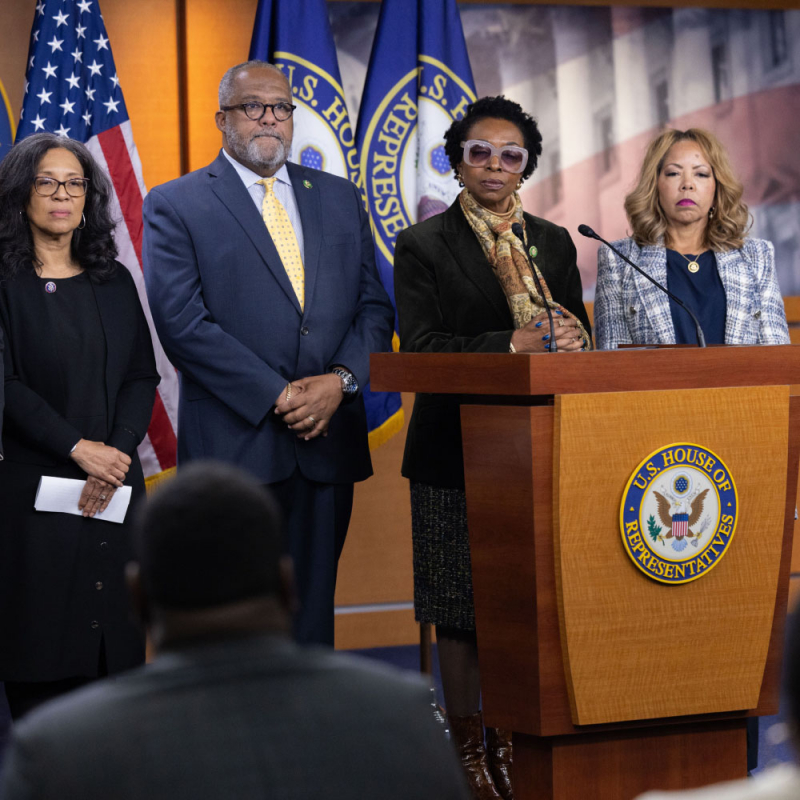The Supreme Court recently heard arguments in the case of Comcast Corporation v National Association of African American Owned-Media and Entertainment Studios Networks, Inc., a case that has crucial implications for all African Americans engaged in commerce, from employees and consumers to business owners.
Black Economic Alliance (BEA) opposes any diminution in rights for African Americans, and the adjudication of the this case threatens the oldest civil rights statute and its fundamental protection of black commerce. BEA is not a party to the litigation, nor does it take a position in the underlying commercial matters in dispute, but it urges all who are concerned with the protection of work, wages, and wealth for Black America to stand in opposition to an adverse ruling in the case.
As Sherrilyn Ifill, President and Director-Counsel of the NAACP Legal Defense Fund, which filed an amicus brief with the Court, explains:
This case involves the integrity of our oldest civil rights statute, 42 USC section 1981. The statute, known in shorthand simply as “section 1981” is the modern codification of the Civil Rights Act of 1866, passed by Congress just a year after the end of the Civil War and before the passage of the 14th and 15th amendments. The purpose of the statute was clear: to place African Americans on equal footing with white Americans and to remove the vestiges of slavery by outlawing conduct not only by states – but also by private parties – that would prevent African Americans from developing the means to work, build wealth, have access to the justice system to vindicate their rights, and live freely after enslavement.
The statute states that “all persons…shall have the same right… to make and enforce contracts, to sue, be parties, give evidence, and to the full and equal benefit of all laws and proceedings for the security of persons and property as it enjoyed by white citizens.” https://www.law.cornell.edu/uscode/text/42/1981 It is unique among civil rights statutes in its explicit reference to equality with “white citizens.”
The statute applies broadly, prohibiting racial discrimination in employment, banking, consumer and business transactions, and any other economic relationships involving the making or performance of contracts. It is a critical tool in protecting African Americans and other people of color seeking to own their own homes, rent apartments, obtain loans, in retail transactions, and in protecting African American small business owners and would-be small business owners who face racial steering, discriminatory denials of equal terms and conditions for financial transactions. But we also raised section 1981 claims in our public housing “stop-and-frisk” case in New York. “Shopping while Black” claims of racial profiling are often section 1981 claims.
This case involves the unusual circumstance of a very wealthy African American plaintiff, Byron Allen, who charges racial discrimination in the refusal of Comcast to carry Mr. Allen’s channels on Comcast’s media platform. But a plaintiff’s wealth should not diminish or affect the Court’s view of the important issue in this case. An unfavorable ruling has the potential to undermine how section 1981 claims are adjudicated, not only for African American business leaders, but more importantly for thousands of low and moderate income African Americans for decades to come.
The issue concerns whether in order to prove that the statute has been violated, a plaintiff must prove that the discriminatory decision reached by the defendant would not have been reached “but for” racism. The danger here is that even if racism has infected a decision or denial, the defendant would be protected from liability under section 1981, unless the plaintiff can prove that racism was the “but for” cause of the decision. In essence, such a determination by the Supreme Court would mean that decisions that affect the economic rights of African Americans could be tainted with a little bit of racism – or even a lot of racism. But the plaintiff would be compelled to allege that the decision would not have been made “but for” the racism.
Why is this problematic? The arguments advanced by Comcast would shield a defendant from liability by simply allowing the defendant to point to a race neutral reason that also supported the defendant’s discriminatory decision, to defeat a plaintiff’s claim. Thus if an African American employee and a white employee make the same mistake on the job, and an employer fires the African American employee while urging the white employee to do better, the employer has obviously violated the law. It should not matter that there was also a race neutral reason that combined with the employer’s racism to cause the African American employee to be fired.
Most disturbing is the potential imposition of this standard on plaintiffs at the outset (pleading stage) of litigation. Defendants are most often in control of the kind of information that is needed to prove discrimination under any standard. Plaintiffs need discovery to learn about the full dimensions of the defendant’s conduct. Courts should not be permitted to dismiss plaintiffs’ claims of discrimination under section 1981 for failing to allege facts that would meet a “but for” standard. So long as plaintiffs allege that racial discrimination was a motivating factor in the defendant’s decision, that pleading should be sufficient to state a claim under section 1981 and should not be dismissed. This is the principal focus of the argument in our amicus brief.
The stakes are high in this case. An adverse ruling by the Supreme Court could make section 1981, our oldest civil rights statute, virtually impotent in all but a narrow sliver of cases.
Black Economic Alliance stands with the NAACP Legal Defense Fund (LDF), other organizations, and members of Congress who joined amicus briefs in support of the protection of section 1981 and the rights it upholds. An adverse ruling would be a monumental impediment to our mission to advance opportunities for work, wages and wealth for Black America.


